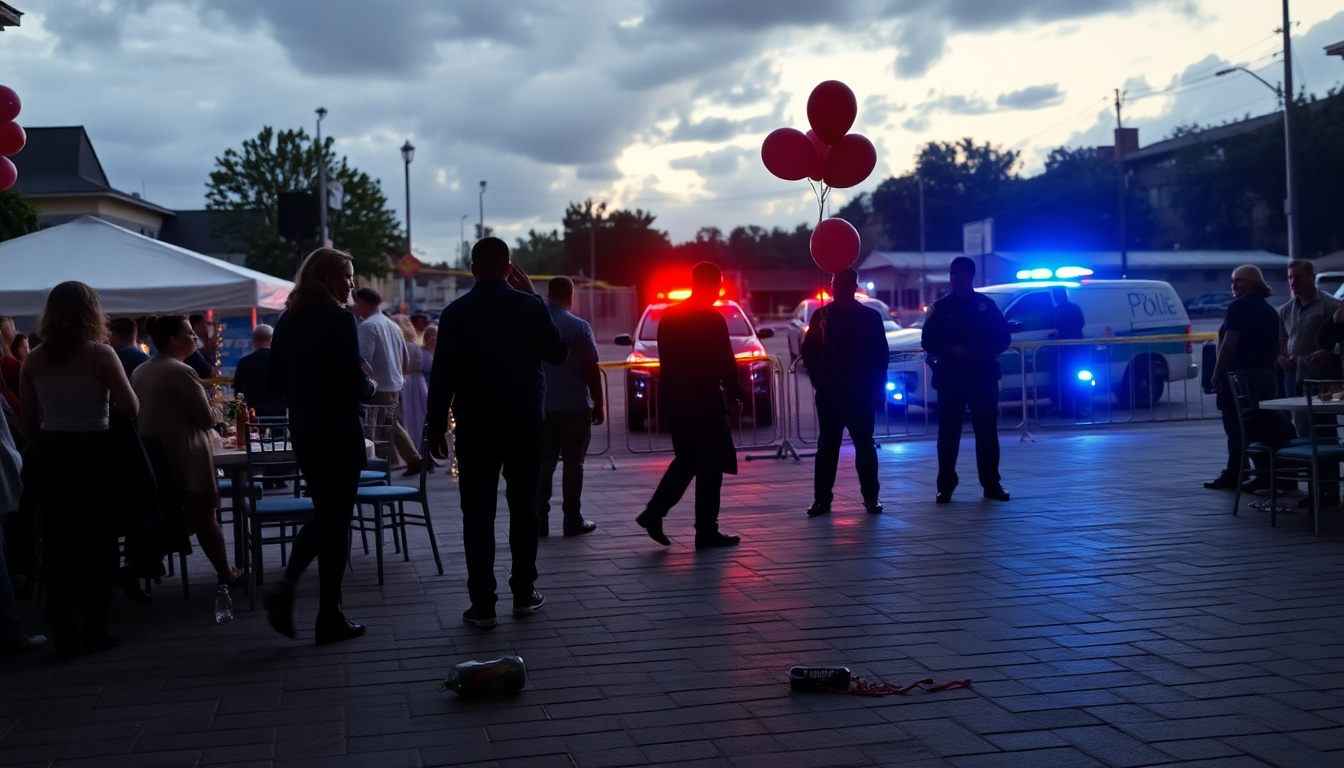Table of Contents
When violence strikes at public gatherings, it can destroy the very sense of community and safety these events are meant to create. Recent events in Chattanooga, Tennessee, remind us just how quickly a joyful occasion can turn into a nightmare. During a class reunion, gunfire erupted, injuring four people and sparking an immediate police investigation. This incident not only raises alarms about the rising tide of gun violence but also underscores the broader implications for community events and public safety.
The Incident and Immediate Response
It all unraveled around 3 p.m. local time, transforming what was supposed to be a celebratory reunion into chaos. Eyewitnesses describe a scene filled with disbelief and terror as attendees, who were enjoying their time, suddenly found themselves ducking for cover. Jeoff Herman, who witnessed the panic firsthand, recounted how people instinctively sought safety, many dropping to the ground in a desperate attempt to shield themselves. Emergency services arrived quickly, rushing the injured to a nearby hospital, where thankfully, they received treatment for non-life-threatening injuries.
As of now, authorities have not released any information about the suspect, which has left the community in a state of uncertainty and fear. However, officials have reassured the public that there is no ongoing threat, a crucial statement intended to calm nerves in the wake of such distressing violence.
Community Reactions and Implications
Incidents like this have a profound emotional and psychological impact not just on those directly involved, but on the community as a whole. The initial shock often gives way to a wave of fear that might deter people from attending future events. Safety at community gatherings is essential; when that safety is compromised, it can lead to significant societal repercussions.
The aftermath of this shooting is likely to ignite conversations about gun control, public safety measures, and the necessity of community vigilance. Residents may find themselves rethinking their feelings of security in local spaces that once felt safe. As people become more cautious, the dynamics of social gatherings could shift, potentially leading to a decline in community engagement. Isn’t it sad to think that joy can be overshadowed by fear?
Long-Term Effects on Community Events
In the long run, the consequences of violence at public events can be extensive. Communities might start adopting stricter security protocols for future gatherings, changing the nature of these social interactions. An increased police presence, security checks, and surveillance systems could soon become the norm, altering how we experience community events.
Moreover, the psychological toll on victims, witnesses, and the broader community is something we cannot overlook. The trauma from such incidents can linger, affecting mental health and community cohesion. As communities navigate these challenges, fostering open dialogue about healing, safety, and maintaining strong social ties is essential—even in the face of violence. How can we ensure that our communities remain resilient in the face of such challenges?


